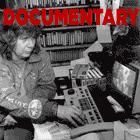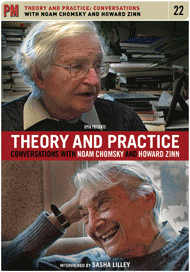When it rains, it pours
First Kirkpatrick, then Pinochet? Pardon the joy, but it must be yippy skippy week for LAtin America as all the old monsters finally croak. Hopefully, this won't become an obituary blog, but as there are probably other people who read the scum obits and grit their teeth through the "balanced" rememberance. For instance, while we learn that Pinochet killed and tortured thousands through his ruthless coup, one is also told that he corrected the Chilean economy after the rough Allende years. Nowhere does it mention that any roughness in the Allende years was caused by the same forces that brought Pinochet into power: the American and Chilean elites. It's like not mentioning the decade of U.S.-enforced embargo against Iraq and then remarking that, despite the bloodshed of the U.S. plundering of Iraq, at least the economy is running better. One might respond that the Iraqi economy isn't running better by any rational metric which makes the parallel all the more true.
In fact, let's continue this Iraqi-Chilean with our dear friend, geographer David Harvey:
This analysis is important, but let's not forget that Pinochet ordered the torture and murder of countless activists, students, and academics. His death is a good thing, but it can not erase the heavy crime he committed or the guilt of his many American con-conspirators who are still alive and well.
In fact, let's continue this Iraqi-Chilean with our dear friend, geographer David Harvey:
THE NEO-LIBERAL TURN
What the US evidently seeks to impose by main force on Iraq is a full-fledged neo-liberal state apparatus whose fundamental mission is to facilitate conditions for profitablecapital accumulation. The sorts of measures that Bremer outlined, according to neo-liberal theory, are both necessary and sufficient for the creation of wealth and therefore for the improved well-being of whole populations. The conflation of political freedom with freedom of the market and of trade has long been a cardinal feature of neo-liberal policy and it has dominated the US stance towards the rest of the world for many years. On the first anniversary of 9/11, for example, President Bush announced in an op-edpiece published in the New York Times, that "We will use our position of unparalleled strength and influence to build an atmosphere of international order and openness in which progress and liberty can flourish in many nations. A peaceful world of growing freedom serves American long-term interests, reflects enduring American ideals and unites America's allies....We seek a just peace where repression, resentment and poverty are replaced with the hope of democracy, development, free markets and free trade," these last two having "proved their ability to lift whole societies out of poverty." Today, he concluded, "humanity holds in its hands the opportunity to offer freedom's triumph over all its age-old foes. The United States welcomes its responsibility to lead in this great mission." This same language appeared in the prologue to the National Defense Strategy Document published shortly thereafter. It is this freedom, interpreted as freedom of the market and of trade, that is to be imposed upon Iraq and the world.
It is useful to recall here, that the first great experiment with neo-liberal state formation was Chile after Pinochet’s coup on the “little September 11th” of 1973 (almost thirty years to the day before Bremer’s announcement of the regime to be installed in Iraq). The coup, against the democratically-elected and leftist social democratic government of Salvador Allende, was strongly backed by the CIA and supported by US Secretary of State Henry Kissinger. It violently repressed all the social movements and political organization of the left and dismantled all forms of popular organization (such as the community health centers in poorer neighborhoods). The labor market was “freed” from regulatory or institutional restraints (trade union power, for example). But by 1973 the policies of import substitution that had formerly dominated in Latin American attempts at economic regeneration (and which had succeeded to some degree in Brazil after the military coup of 1964) had fallen into disrepute. With the world economy in the midst of a serious recession, something new was plainly called for. A group of US
economists known as “the Chicago boys,” because of their attachment to the theories of Milton Friedman then teaching at the University of Chicago, were summoned to help reconstruct the Chilean economy. They did so along free-market lines, privatizing public assets, opening up natural resources to private exploitation and facilitating foreign direct investment and free trade. The right of foreign companies to repatriate profits from their Chilean operations was guaranteed. Export-led growth was favored over import substitution. The subsequent revival of the Chilean economy in terms of growth rates,
capital accumulation, and high rates of return on foreign investments, provided evidence upon which the subsequent turn to more open neo-liberal policies in both Britain (under Thatcher) and the US (under Reagan) could be modeled. Not for the first time, a brutal experiment carried out in the periphery became a model for the formulation of policies in the center (much as experimentation with the flat tax in Iraq is now proposed).
The Chilean experiment demonstrated, however, that the benefits were not well-distributed. The country and its ruling elites along with foreign investors did well enough while the people in general fared badly. This has been a persistent enough effect of neo- liberal policies over time as to be regarded as structural to the whole project. Dumenil and Levy go so far as to argue that neoliberalism was from the very beginning a project to achieve the restoration of class power to the richest strata in the population. Commenting on how the top one percent of income earners in the US fared, they write:
Before World War II, these households received about 16 percent of total income.
This percentage fell rapidly during the war and, in the 1960s, it had been reduced to
8 percent, a plateau which was maintained during three decades. In the mid 1980s,
it soared suddenly and by the end of the century it reached 15 percent. Looking at
total wealth, the trend is broadly identical….”
Almost certainly, with the Bush administration’s tax cuts now taking effect, the concentration of wealth in the upper echelons of society is continuing a-pace. Dumenil and Levy also noted that “the structural crisis of the 1970s, with rates of interest hardly superior to inflation rates, low dividend payout by corporations, and depressed stock markets, further encroached on the income and wealth of the wealthiest” during those years. Not only were the 1970s characterized by a global crisis of stagflation, but this was the period when the power of the upper classes was most seriously threatened. Neo-
liberalism arose, the argument goes, as a response to this threat.
This analysis is important, but let's not forget that Pinochet ordered the torture and murder of countless activists, students, and academics. His death is a good thing, but it can not erase the heavy crime he committed or the guilt of his many American con-conspirators who are still alive and well.
Labels: scum





0 Comments:
Post a Comment
<< Home